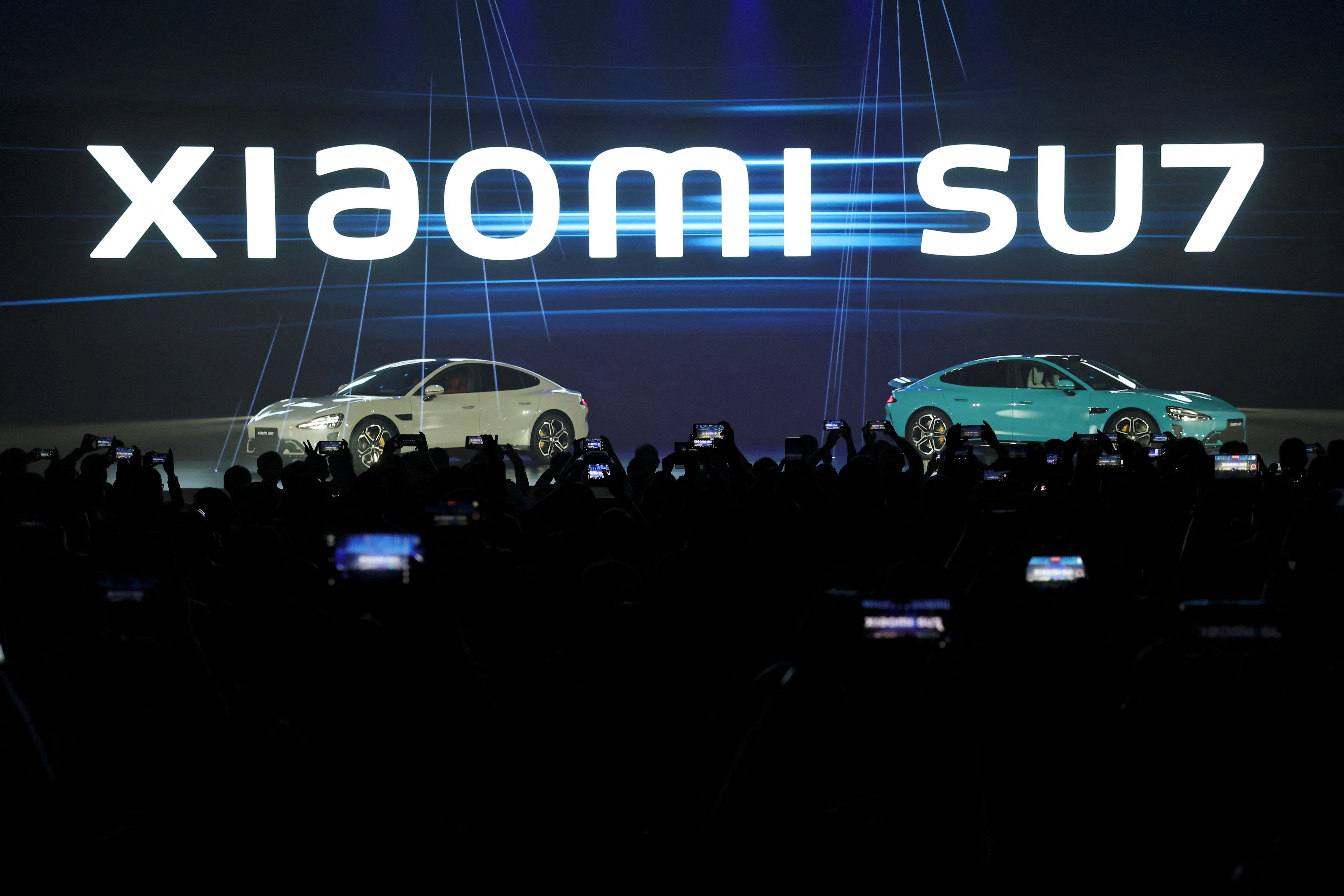China’s tech giant Xiaomi has unveiled its first EV model, the Xiaomi SU7, in a bid to challenge industry leaders Tesla and Porsche. The company, known for smartphones and home appliances, has invested over ¥10 billion ($1.4 billion) in developing the SU7. CEO Lei Jun announced the EV’s imminent trial production and a domestic market launch in a few months. Xiaomi aims to stand out by integrating the SU7 with its smartphones and smart home appliances, emphasizing data privacy and surpassing U.S. safety standards.

Bold Ambitions in the EV Landscape : China’s Xiaomi
Xiaomi’s foray into the EV sector marks a strategic move to diversify its product offerings beyond smartphones and home appliances. The company aims to position itself as a key player in the competitive Chinese EV market, boasting features that outperform rivals. Xiaomi’s SU7, pronounced “Sue Qi,” reportedly surpasses acceleration metrics of Porsche’s Taycan and Tesla’s Model S, as claimed by Lei during a three-hour presentation. The EV is designed to compete in the luxury segment, with sales expected to commence in 2024.
Technological Integration and Differentiation
One distinctive feature of the SU7 lies in its integration with Xiaomi’s existing ecosystem, aligning with the company’s vision of a “Human x Car x Home” smart ecosystem. Leveraging its expertise in smartphones and home appliances, Xiaomi intends to offer a seamless experience for users by connecting the SU7 with its devices. CEO Lei highlighted the vehicle’s compatibility with Apple’s iPhone, iPad, CarPlay, and AirPlay, emphasizing the importance of data privacy and safety standards.
Market Dynamics and Xiaomi’s Positioning
Xiaomi’s entry into the EV market comes at a time when several domestic players, including Nio, Huawei, and Xpeng, are unveiling new electric vehicles. The company faces stiff competition in a market where differentiation through technology and innovation is crucial. Xiaomi’s success hinges on its ability to carve a niche for itself, leveraging its established brand in the consumer electronics sector.
Strategic Moves and Future Prospects

China’s Xiaomi announcement aligns with its strategic efforts to expand beyond its core businesses and tap into emerging markets. The company has made substantial investments in research and development, expecting to spend ¥20 billion on R&D in 2023, reflecting a 25% increase from the previous year. China’s Xiaomi aims to position itself as a leader not only in EVs but also in autonomous driving, as indicated by CEO Lei’s ambitions for the SU7.
Challenges and Road Ahead
While Xiaomi sets its sights on the EV market, challenges lie ahead, including navigating a highly competitive landscape, meeting consumer expectations, and addressing potential regulatory hurdles. The success of the SU7 will depend on factors such as pricing, technological innovation, and consumer reception. Xiaomi’s move into the EV sector reflects the broader trend of tech companies diversifying into new markets to drive growth and remain relevant in an evolving business landscape.
Xiaomi’s entry into the EV market adds a new dimension to the highly competitive landscape in China. The company’s ambitious plans and technological integrations set the stage for an interesting chapter in the electric vehicle industry. As Xiaomi gears up to compete with established automakers, the success of the SU7 will undoubtedly shape the company’s future trajectory and influence the evolving narrative of China’s dynamic electric vehicle market.